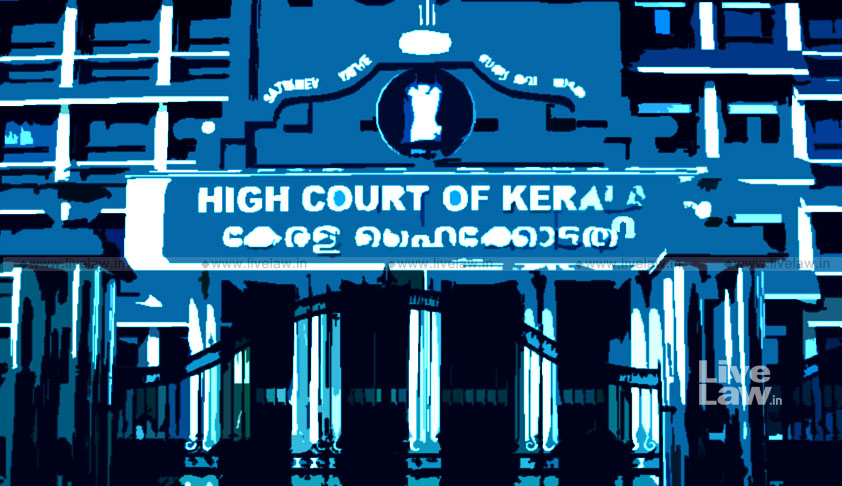Major Girl's Right To Choose A Partner vis-a-vis Right To Reside With Him Without Marriage: A Matter Of Judicial Prescription
Sandhya Ram
22 Aug 2017 9:12 AM IST

The High Court of Kerala is off late in the limelight of academic discussions, owing to the variety of marriage cases that come before it by virtue of writ of habeas corpus.
The case of Ashokan K.M (Akhila @ Hadiya Case) has brought the High Court to the national forefront of debates, due to the unusual order declaring a marriage void, even when the bride and the groom did not contest it. The parens patriae jurisdiction exercised by the Court in that case is still under a fog of vagueness and uncertainty, and the Supreme Court has ordered investigation by NIA into the matter. The case raises an array of legal dilemma, all of which will hopefully clear and settle with the Supreme Court judgment which is much awaited in the matter.
It is at this hour when legal fraternity is vigorously discussing the scope of parental authority on the personal choices of a major daughter and the extent of judicial control that may be exercised over personal liberty of an adult person of sound mind, that another interesting decision is delivered by the High Court of Kerala on 24th July 2017 in X v. Y(name changed due to right to be forgotten).
The parents of a girl studying in twelfth standard, aged 18 years and 8 months (on the day of judgment) filed a writ of habeas corpus to secure her release from the custody of a boy whom she loves and intends to marry. The boy and the girl had given notice of their marriage with the Sub Registrar for the purpose of marriage at the time the writ was filed. The girl stated before the court that she had voluntarily left with the boy and that there was no illegal confinement.
The contention of the parents/petitioners was that the boy and his father were accused of several criminal charges (including charge of abuse of women) and that the girl does not have the mental capacity and maturity to take a decision for herself. On the request of the parents, the girl was subjected to psychiatric examination, the report of which revealed that she did not have any manic or psychic disorder. A diagonostic psychometry was also conducted which revealed that she has personality disorder, characterized by immaturity, impulsivity, rebelliousness, inability to emphathize with others and unstable emotional control.
In these circumstance the High Court though sympathized with the sentiments of the parents, held that a major son or daughter has all the rights of a citizen including the right to choose a partner and that court cannot come in the way of their exercise of fundamental right under Article 21 of the Constitution.
The Court emphatically asserted the contours of the right of major girls (and boys) to opt for a criminal or a convict a person of different religion, caste, colour, language or even decide not to marry at all. Having declared the glorious rights of the citizens, thereby the Court ordered that the girl be accommodated in a hostel at the expense of her parents till solemnization of the marriage, as per her choice. Until then only her parents were permitted to interact with her.
The judgment at a first glance, appears to be progressive in the sense of upholding the right to choice of the citizens in matters that affect them, especially the right to choose their partner. However the judgment also reflects judicial double standard in the matter of a girl’s right to choice. If a girl of 18 years has the right to choose her partner and discard parental authority, it is unclear as to why she does not have the right to reside in a place of her choice, with a person of her choice.
What exactly is the basis of the judgment in accommodating her in a hostel, and allowing her to interact only with her parents is beyond judicial explanation. If she has the right to choose her partner, does she not have the right to choose her residence? Is it illegal or unconstitutional for a girl to live with a boy without marriage? Is it that she has to first marry to exercise her freedom of choice regarding other matters? This is indeed a Manusmrithian thought that a girl is to be handed over from parents to her husband like a baton, who will take turns taking care of her , all of these based on the dictum, “na sthree swaathanthryamarhathi?”
It makes one ponder with curiosity whether the court would have gone for the hostel part of the order, if the female involved was over thirty years. The extra protection which the Court is weaving in its order is indeed a precaution, considering the tender age of the girl involved in the case. That be the case, the court could have considered the diagonostic psychometry report which says that the girl is immature, impulsive, rebellious and has unstable emotional control.
Spell it or not, it is a colourable exercise of parens patriae.
 Sandhya Ram is an Asst. Professor at V.M.Salgaoacar College of Law, Goa,
Sandhya Ram is an Asst. Professor at V.M.Salgaoacar College of Law, Goa,Views are purely personal


